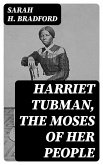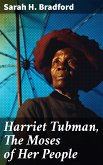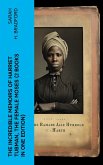Harriet Tubman, born Araminta Ross, (c.¿1822 - 1913) was an American abolitionist, humanitarian, and an armed scout and spy for the United States Army during the American Civil War. Born into slavery, Tubman escaped and subsequently made some thirteen missions to rescue approximately seventy enslaved people, family and friends, using the network of antislavery activists and safe houses known as the Underground Railroad. Sarah Hopkins Bradford (1818 - 1912) was an American writer and historian, best known today for her two pioneering biographical books on Harriet Tubman. Bradford was one of the first Caucasian writers to deal with African-American topics, and her work attracted worldwide fame, selling very well. Contents: Scenes in the Life of Harriet Tubman Some Scenes in the Life of Harriet Tubman Extracts From a Letter Written by Mr. Sanborn, Secretary of the Massachusetts Board of State Charities Statements Made by Martin I. Townsend, Esq., of Troy, Who Was Counsel for the Fugitive, Charles Nalle Essay on Woman-whipping Harriet: the Moses of Her People Some Additional Incidents in the Life of "Harriet" Fugitive Slave Rescue in Troy
Dieser Download kann aus rechtlichen Gründen nur mit Rechnungsadresse in A, B, BG, CY, CZ, D, DK, EW, E, FIN, F, GR, H, IRL, I, LT, L, LR, M, NL, PL, P, R, S, SLO, SK ausgeliefert werden.









